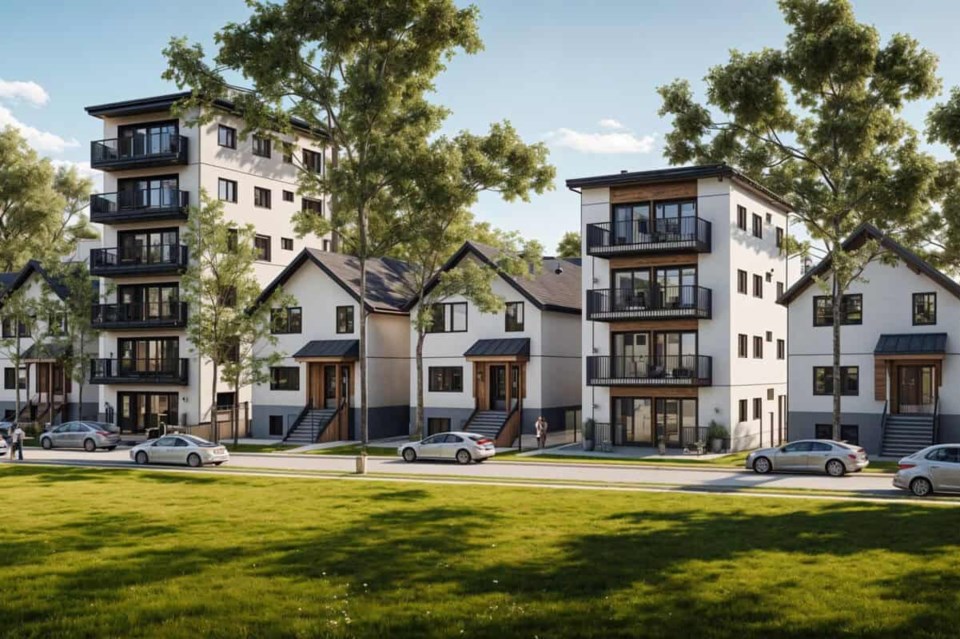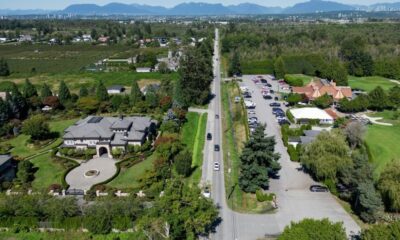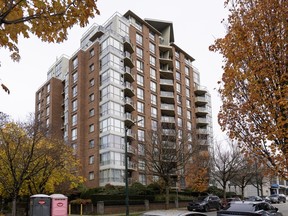World
Vancouver Expert Advocates for Apartment Density in Shaughnessy

The debate surrounding urban development in Vancouver has intensified as experts discuss the potential for increased apartment density in the affluent neighbourhood of Shaughnessy. In a recent statement, urban planning authority Dr. Mark D. Johnson called for a more equitable distribution of residential density across the city, emphasizing the need to address housing shortages.
Dr. Johnson’s remarks were made during a panel discussion hosted by the Urban Development Institute on March 15, 2024. He highlighted that the current zoning regulations in Shaughnessy, which traditionally favour low-density single-family homes, contribute to escalating housing prices in the region. He urged the City of Vancouver to reconsider its approach to zoning in this prestigious area, suggesting that it could accommodate more multi-family units without compromising its character.
The city’s housing crisis is profound, with recent data from the Canadian Housing Statistics showing a staggering 15% increase in prices over the past year. This surge has made homeownership increasingly unattainable for many residents. Dr. Johnson argues that by permitting apartment buildings in Shaughnessy, the city could introduce affordable housing options that would benefit a broader demographic.
Shaughnessy’s Historical Context and Current Challenges
Shaughnessy is known for its spacious lots and grand homes, often viewed as a symbol of affluence in Vancouver. The area has maintained strict zoning laws that have historically prioritized single-family homes. As a result, it has largely escaped the pressures of urban density that other parts of the city have faced. However, the ongoing housing crisis has prompted discussions about the need for change.
The Greater Vancouver Housing Society has also weighed in on the issue, advocating for a balanced approach to development. They suggest that integrating apartment buildings into Shaughnessy could help alleviate some of the pressure on the housing market while still respecting the community’s unique character. Their position aligns with Dr. Johnson’s view that successful urban planning must adapt to current realities.
Dr. Johnson presented evidence supporting the argument for increased density. He pointed out that areas with diverse housing options tend to foster more vibrant communities. When families, young professionals, and retirees live in close proximity, it enhances local economies and community engagement.
Community Response and Future Implications
The proposal to introduce apartment buildings to Shaughnessy has garnered mixed reactions from local residents. Some community members express concern that such developments could alter the neighbourhood’s character and increase traffic congestion. Others, however, welcome the idea, believing it could create more inclusive living environments.
The city has not yet made a definitive decision regarding potential zoning changes. Any modifications would require extensive public consultations and input from stakeholders to ensure that the interests of existing residents are considered.
As Vancouver navigates its housing crisis, the discussion surrounding Shaughnessy may serve as a litmus test for broader urban planning policies throughout the region. The implementation of increased density in affluent areas could reshape the city’s approach to housing, potentially setting a precedent for other communities facing similar challenges.
Dr. Mark D. Johnson and his colleagues continue to advocate for innovative solutions that prioritize affordability and inclusivity in Vancouver’s housing landscape. The outcome of this debate could have lasting implications for the city and its residents. As public interest grows, the city will need to balance development with the preservation of community identity.
-

 World4 months ago
World4 months agoScientists Unearth Ancient Antarctic Ice to Unlock Climate Secrets
-

 Entertainment4 months ago
Entertainment4 months agoTrump and McCormick to Announce $70 Billion Energy Investments
-

 Lifestyle4 months ago
Lifestyle4 months agoTransLink Launches Food Truck Program to Boost Revenue in Vancouver
-

 Science4 months ago
Science4 months agoFour Astronauts Return to Earth After International Space Station Mission
-

 Technology2 months ago
Technology2 months agoApple Notes Enhances Functionality with Markdown Support in macOS 26
-

 Top Stories4 weeks ago
Top Stories4 weeks agoUrgent Update: Fatal Crash on Highway 99 Claims Life of Pitt Meadows Man
-

 Sports4 months ago
Sports4 months agoSearch Underway for Missing Hunter Amid Hokkaido Bear Emergency
-

 Politics3 months ago
Politics3 months agoUkrainian Tennis Star Elina Svitolina Faces Death Threats Online
-

 Politics4 months ago
Politics4 months agoCarney Engages First Nations Leaders at Development Law Summit
-

 Technology4 months ago
Technology4 months agoFrosthaven Launches Early Access on July 31, 2025
-

 Top Stories2 weeks ago
Top Stories2 weeks agoFamily Remembers Beverley Rowbotham 25 Years After Murder
-

 Top Stories1 week ago
Top Stories1 week agoBlake Snell’s Frustration Ignites Toronto Blue Jays Fan Fury



















